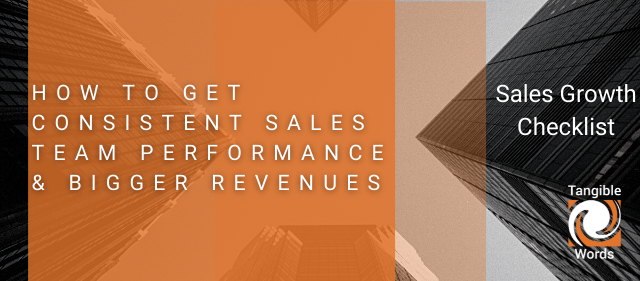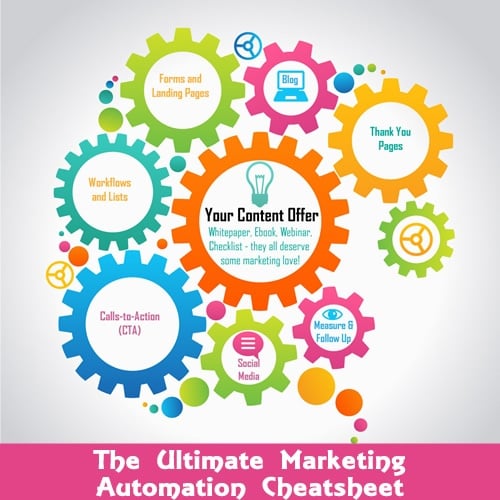SHARE
5 Ways Inbound Marketing Complements Your Sales Growth

Aligning your inbound marketing team with your sales team is something you hear about quite frequently when it comes to inbound marketing.
It is true, sales growth is more successful if sales and marketing work together. But how will this alignment actually make things better?
How Do Sales and Inbound Marketing Complement Each Other?
Think of the sales department as an octopus: inbound is one of its tentacles.
Sure — the octopus is way more effective with all 8 tentacles, so you both want to do all the 7 other things you’re doing to be an effective sales professional, but you also want to avoid being a leg short of what your competitors are doing. That 8th leg could even help you jump past them and get ahead.
Because inbound is the new leg you didn’t know you could use or didn’t know you were missing, it’s critical that this system is not built in isolation. It absolutely needs to be a project both marketing and sales departments are committed to using and involved in developing.
In fact, we could completely scrap the octopus analogy and say that Inbound is the ultimate cord of life, a loving dialogue between marketing and sales, and the lifeblood link that makes your company actually profitable now and long term.
Don’t believe me because I use too many analogies? Check how Inbound and Sales both scratch each other’s back (sorry, couldn't help myself) to do the following things.
1. Brand Awareness
With Inbound in place, sales and marketing cross-promote each other.
A solid inbound marketing strategy builds brand awareness and keeps your company top of mind for potential customers. Sales will benefit from brand awareness, but they can also help build it by sharing helpful inbound content, like links to blog posts that may answer customer questions.
2. Targeted Lead Generation
Strong marketing and sales strategies should include detailed target personas. If both sales and inbound are targeting the same personas, they’re more likely to succeed with those people. If the sales team understand the goals of each lead that inbound delivers, they can better delight those customers and turn them into repeat buyers and referrals.
If inbound understands the customers that sales are targeting, they can develop content that is relevant to leads. Cohesive messaging, from content and sales, builds trust with potential leads and existing customers.
3. Customer Relationships
 Building strong customer relationships is one of the foundations of business. Sharing a customer relationship management (CRM) tool helps both sales and marketing be more effective.
Building strong customer relationships is one of the foundations of business. Sharing a customer relationship management (CRM) tool helps both sales and marketing be more effective.
With all contacts centralized and segmented, inbound can develop better personas and tailor content that is relevant to each specific segment of your audience.
With everything stored in a CRM the sales team can quickly review the entire contact history of a lead and get an understanding of where they are in the sales funnel, what they’re interested in, and what solutions they’re looking for.
This makes it easier for the sales team to provide top quality customer service, and work more efficiently with a shorter sales process. Consistency of information and understanding of the customer’s experience also builds trust.
4. Lead Nurturing
In the past lead nurturing has been the sole responsibility of sales teams. It was their job to make the first contact, and then get to know the lead over time and encourage them to buy.
With an inbound strategy, sales are getting warm leads. By collaborating with marketing, they can develop content for targeted email series that qualifies the lead before a sales rep even makes contact.
Once email sequences are developed, sales can focus their time on qualified leads. They can also deliver feedback to marketing about the results of the emails, helping them tweak and refine the content.
5. Lead Scoring
Beyond lead nurturing, it's important to start thinking about lead scoring. In order to deliver the best results, your sales and marketing teams need to be aligned here as well.
In HubSpot, we set up and tweak a system that helps score the leads you’re bringing in — automatically, without effort from your team.
Sometimes what appears to be a great lead from the marketing perspective may not be a very good lead from a sales perspective. Lead scoring helps you weed out the weak leads, and get both your teams focused on leads with the best probability of closing deals.
If both your teams are working towards the same goals, they’ll be able to build trust in each other and deliver even stronger results.
Inbound Gives Your Sales Team Better Sales Growth
Your sales team is much more efficient and successful with a full arsenal of tools, including inbound marketing. If everyone is working towards the same goal, and targeting the same leads, your sales growth will be stronger and more consistent. Want to know more? 
References:
https://blog.hubspot.com/sales/outdated-sales-tactics-to-abandon
Topics
- Content Creation (297)
- Growth-Driven Design Websites (167)
- Inbound Marketing (147)
- Sales Growth (133)
- Tangible Words (111)
- Search Engine Optimization (85)
- Social Media Marketing (83)
- Hubspot (78)
- Blogging for Business (75)
- Economic Development (64)
- Events & Training (60)
- Company Growth Podcast (49)
- Manufacturing (47)
- Tourism (46)
- Email Marketing (42)
- Case Stories (40)
- Testimonials & Client Feedback (36)
- Education and SaaS (23)
- Google (21)
- Careers (19)
- Inbound Marketing Agency (19)
- Cool Companies (18)
- FAQ (16)
- Alysha Dominico (13)
- Associations (7)
- Food and Beverage (7)
TW Blog Sign-Up
Learn more about how to grow your business and improve your sales team process.




2%20(blog%20dimensions)(alterntate%20text).jpg)


